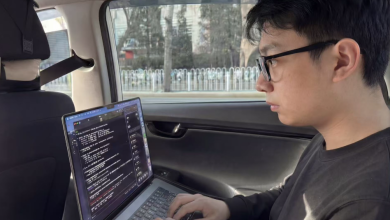
For years, search engine optimization (SEO) has been defined by a familiar playbook: keywords, backlinks, site speed, and user experience. Businesses focused on ranking higher in Google’s results, and success meant visibility in those coveted first-page spots.
But the ground is shifting beneath us. Artificial intelligence is not just changing how search engines work, it’s also changing how people search. The way businesses approach SEO today will look very different from the strategies they’ll need tomorrow.
Let’s take a look at three key themes: how humans and AI are becoming partners in SEO, how search is evolving from keyword-driven results to intent-based conversations, and what it means for the future as AI systems themselves become the primary engines of search.

Why the Best SEO Happens When People and Machines Work Together
AI as the Heavy Lifter
One of the most immediate benefits of AI in SEO is its ability to handle repetitive, time-consuming work at scale. Keyword research, competitor analysis, and technical audits are essential but often tedious tasks.
AI tools can now analyze massive keyword datasets in seconds, uncover hidden ranking opportunities, and flag technical errors that would take humans hours to find. For example, AI-driven crawlers can scan thousands of pages, identify broken links, and highlight slow-loading elements in real time, giving SEO teams the ability to act faster and smarter.
Humans as the Storytellers
While AI excels at crunching data, it lacks the ability to connect emotionally with readers or capture the unique nuances of a brand. Crafting a narrative, developing a brand voice, and creating content that resonates with real human experiences still falls firmly in human hands.
AI might recommend topics like “how to fix a leaky faucet”, but only a human writer can shape the advice into a relatable, trustworthy, and creative article that keeps readers engaged. SEO isn’t just about being found. It’s about building trust and loyalty once people land on your site.
Blending Efficiency with Strategy
The most effective SEO strategies come from blending AI’s efficiency with human creativity. For instance, AI can cluster hundreds of related keywords and predict which topics are trending, but a strategist decides which clusters align with the company’s long-term goals.
Instead of spending hours on research, SEO professionals can focus on high-level planning, cross-channel integration, and campaigns that build authority. In short, AI saves time so humans can add meaning.
How AI Is Changing the Way We Think About Search
Beyond Exact Matches
Search engines are no longer just about matching exact keywords. Thanks to AI models like Google’s RankBrain and BERT, the focus has shifted to understanding the context behind queries.
For example, searching “apple nutrition” no longer just returns pages stuffed with the words “apple” and “nutrition”, it delivers content that answers deeper intent, such as “health benefits of eating apples” or “how apples compare to other fruits”. AI enables search engines to interpret meaning and deliver results that truly address user needs.
Conversational Queries
The way people search is also changing, especially with the rise of voice assistants like Siri, Alexa, and Google Assistant. Instead of typing “best coffee shops Boston”, users ask, “Hey Google, where can I get a good latte near me?”.
These longer, conversational queries are more specific and often more urgent. For businesses, this shift means optimizing for natural language, local intent, and question-based searches. Content must sound like an answer, not just a collection of keywords.
Answering Questions, Not Just Ranking
Modern SEO is increasingly about problem-solving. A shallow, keyword-stuffed page may rank briefly, but it won’t sustain visibility if it fails to satisfy user intent.
On the other hand, a detailed guide that explains step-by-step how to fix a leaky faucet, or even better, includes a short video tutorial, becomes more valuable to both the search engine and the reader. Google and other AI-driven platforms reward content that provides clear, accurate answers. The SEO game has shifted from simply “ranking” to truly “helping”.
The Future — When AI Becomes the Search Engine
AI as the Answer Engine
Generative AI tools such as ChatGPT, Gemini, and Perplexity are already transforming search from a results-based model into an answer-driven one. Instead of scrolling through ten blue links, users can ask, “What’s the best strategy for small businesses to improve SEO?” and receive a comprehensive, conversational response.
This convenience raises an important question: what happens to traditional website traffic when AI delivers the answers directly? Early signs suggest fewer clicks to individual websites, meaning businesses must rethink how they measure visibility and engagement. This shift creates an opportunity for agencies and brands alike, especially when working with the best white label SEO partner available, who can provide the expertise and resources needed to adapt to AI-powered search.
The Challenge for Businesses
The shift toward AI-powered answers presents risks but also opportunities. The risk is clear: if users never leave the AI platform, websites could lose traffic. But there’s also a huge opportunity.
AI assistants pull information from trusted, authoritative sources. That means brands with well-structured, reliable, and regularly updated content can still influence what AI platforms share. It’s not enough to rank on Google anymore. Your content must be credible enough to be cited by AI. Businesses that embrace this shift early will position themselves ahead of competitors.
SEO in an AI-First World
In the near future, we may see the rise of “AI-native SEO”, a new practice focused on optimizing content specifically for AI assistants. This could mean structuring articles for easy summarization, ensuring factual accuracy, and highlighting expertise in ways that algorithms can validate.
Just as businesses once adapted from print to digital and from desktop to mobile, the next frontier will be adapting from traditional search engines to AI-driven answer systems. Brands that stay flexible and forward-thinking will thrive in this environment.
Conclusion
AI is reshaping SEO on multiple levels. It’s becoming a partner that handles the heavy lifting while humans focus on creativity and strategy. It’s changing search itself, pushing optimization beyond keywords and into conversations that prioritize intent and problem-solving.
And most significantly, it’s redefining the future of search, where AI platforms themselves may become the primary engines people use to find information.
SEO isn’t dying. It’s transforming. Businesses that embrace this transformation and prepare for an AI-first world will not only survive but thrive. The future of search may not be about links and rankings at all, but about being the answer that AI chooses to share. The question is: are you ready to optimize for tomorrow?


